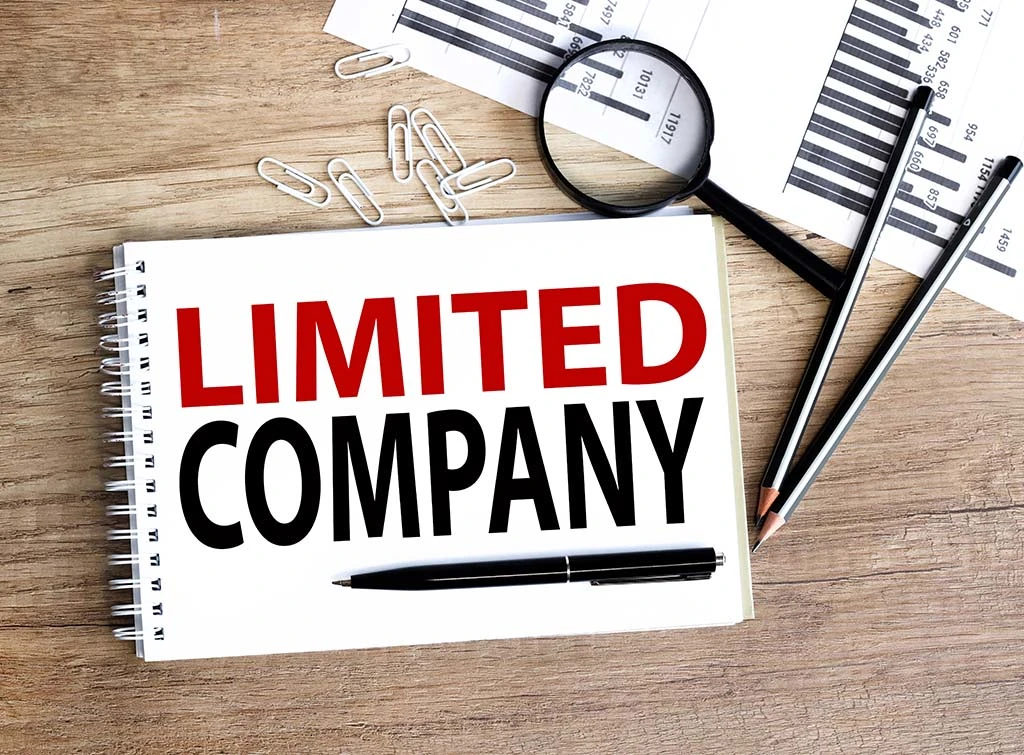Blog>Trade>Business Management>What are the roles and responsibilities of a director in a company?
Last updated: 19 December 2024
What are the roles and responsibilities of a director in a company?
The responsibilities of a director of a private limited company are broad. There are legal responsibilities to consider, as well as essential tasks that are part of the role. This article explains what you need to know as a company director.

If you run your own company, even as a skilled tradesperson, there are a number of business management skills you need to know. The roles and responsibilities of director in a company are varied, and we look at what is included below.
As a company director, you need to consider the wider picture. For example, you'll make financial decisions, including managing company assets.
Then there's overseeing employee interests. Not to mention managing customer and supplier relationships.
Becoming a company director
For many tradespeople, deciding to set up a limited company and become a director is a significant step. There are several legal forms of a business. Often, registering as a limited company involves changing your status. Previously, you might be self-employed, a sole trader or in a partnership.
Becoming a director in your limited company involves careful consideration. Our handy guide to setting up a limited company and becoming a director can help you.
If you follow the director route, you have to know the responsibilities of a director of a private limited company.
Beginners guide to setting up a limited company
Deciding to take the leap from being an employee, sole trader or contractor to set up a limited company may be the best decision you ever make. Not only will you reap a range of benefits, but you’ll be the proud owner of your own business. If you’re curious about what a limited company is, how to

What are the seven duties of a director?
Directors occupy an influential position in a company. There are legal requirements as part of the role of company director. These are set out in the Companies Act 2006.
The roles and responsibilities of a director in a company cover seven key areas. These are:
Act within the powers of a company’s constitution
Promote the success of a company
Exercise independent judgement
Exercise reasonable care, skill, and diligence
Avoid conflicts of interest
Do not accept benefits from third parties
Declare any interest in a proposed transaction or arrangement
There is some scope for interpretation as to what are the seven duties of a director. But bear in mind that directors should adhere to a strong moral and ethical business code.
The seven duties apply even if as a director you aren’t a key decision maker in a business. For example, you're still responsible even if you:
Don’t play an active role as a director in the business
Control a board of directors without being on that board
Take orders from others, such as other directors
Act as a director even though you haven’t been officially appointed as one
Lead your company to stronger results
We can help you win more work in your area
Legal responsibilities of a company director in the UK
The main legal responsibility of a company director is the actual running of the company. They are obliged by law to submit certain information to Companies House.
This includes filing business taxes. And also making sure the following information is submitted on time to avoid any penalties:
Annual accounts (even when dormant)
Changes to a company’s officers or their personal details
Changes to a company’s registered office
Information regarding allotment of shares
Registration of charges (eg. Mortgages)
Changes to a company’s people with significant control (PSC) details
Some roles and responsibilities of a company director in a company can be delegated to an accountant. For example, the daily running of a company.
That said, the legal responsibilities of a company director in the UK are for all the company’s accounts, performance and records.

Do's and Don'ts of a company director
Conflicts of interest
One of the key company director responsibilities is to avoid situations involving potential conflicts of interest. The positions and interests of a director’s family are particularly significant in terms of conflicts of interest.
The conflicts of interest responsibilities of a director continue even after they have left the role.
Accepting gifts and other benefits
Another of the responsibilities of a director of a private limited company is not to accept third-party benefits. This includes financial payments, gifts, and contracts. Directors may sometimes accept benefits such as third-party hospitality if there are no clear conflicts of interest.
The government provides useful guidance on company director’s responsibilities.
Essential qualities of a director
Company director responsibilities come as being part of the business's senior management team.
Directors are there to oversee the wider long-term strategy of a company. That means being responsible for making decisions that affect the overall direction of a company and its employees.
To be an effective director, you therefore need to be able to see the bigger picture. Some other essential qualities include:
Strong leadership
Excellent management skills (people and strategy)
Planning and strategy
Clear communication (written and verbal)
Decision making
Innovation, creativity, and adaptability
Analysis and reporting
Collaboration and empathy
These are not legal responsibilities, but they are essential for carrying out the roles and responsibilities.
Company directors should also be able to empathise with the workforce and work towards better people development and career progression. These long-term goals will improve both company success and employee satisfaction.

The different types of company director responsibilities
When it comes to company director responsibilities, you need to distinguish between an executive and a non-executive director.
The executive director is an employee of the company. Executive directors are paid a salary and work directly for the company in a senior position.
However, non-executive directors are independent of the company. They bring objectivity to company decisions and are not influenced by internal issues.
There are therefore different roles and responsibilities of a director in a company depending on their type. Here are some key differences and similarities between the two:
Executive director responsibilities:
Involved in the management of the company
Employed by the company
Paid a salary
Not independent
Involved in company policy and strategy
Non-executive director responsibilities:
Has no management responsibilities
Represents external directors
Paid a service fee
Independent
Involved in company policy and strategy
Both executive and non-executive directors have similar legal responsibilities and duties. They are both board-level roles and often work together in close collaboration.
Lead your company to stronger results
We can help you win more work in your area
What are the different director roles?
The number of directors in a company will vary. It could depend on the company size. As a company expands, more directors may be appointed to oversee different departments in the company.
The roles and responsibilities of a company director also vary according to the job role. The main board of directors will usually include:
Chairman – responsible for overseeing the entire business
Managing Director (MD) – reports to the chairman and is responsible for business performance
Executive Directors – board members who are responsible for running their department or division in the company
Non-executive Directors – independent strategic advisors
Executive directors can be further sub-categorised depending on a company’s structure. Some executive director roles include:
Finance Director
Sales Director
Marketing Director
Production Director
IT Director
Operations Director
To summarise, you'll find the company director's responsibilities are wide-ranging. Remember, the legal responsibilities generally relate to the business’s operations.

What is the salary range of a company director?
Of course, when you ask 'What are the benefits of being a company director?', salary plays an important part. How much you earn as a director will depend on lots of factors. These can include:
Your experience
Your level of seniority
The hours you work
How many people work for you
The amount of company budget you control
Directors are usually paid in one of three ways:
Salary
Expenses
Salaried directors are usually paid in the same way as other employees (through payroll). In addition, as a company employee, you'll receive a director's pension.
Expenses are not a standard part of a director's or employee’s income. They are paid when a person uses their own money for work-related purchases, for example, on petrol or food, and are reimbursed through accounts.
Directors can also be paid a relatively low fixed salary which is increased through performance-related dividends.
Lead your company to stronger results
We can help you win more work in your area
Find more work for your company with Checkatrade
As well as all of these roles and responsibilities for a director in a company, there are also commercial priorities. Company directors can be responsible for boosting turnover and profits.
Bringing in new leads is a key way to do this. If your limited company joins as a Checkatrade member, you'll receive our help with new enquiries.
There are lots of other benefits to membership that you could also consider:
Exclusive offers and discounts at places like Wickes
Reduced cost of workwear and branding
Great discounts on useful business software like Quickbooks
Guaranteed work when booked through us (T&Cs apply)
Dedicated trades app for job management and quoting/invoicing
What do you need to become Checkatrade approved?
Becoming a Checkatrade member comes with a whole host of benefits, but the biggest has to be gaining our seal of approval. Homeowners tend to expect a commitment to quality when it comes to the Checkatrade tick, which can help you to win more business. Here are the checks you'll need to pass to join our directory.

FAQs
What are the benefits of being a limited company director?
These can include earning a high salary, perhaps with good bonuses and pension contributions. You'll also probably have satisfying career challenges to achieve.
What is the salary range of a company director?
This depends on factors like your experience, level of seniority and the hours you work. Salaries will also vary according to how many employees you’re responsible for and how much of the company budget you control.
What are the seven duties of a director?
These are seven legal responsibilities set out in the Companies Act 2006. There is some flexibility here, but most directors should follow them all.
How many directors does a company need?
A minimum of one director, with no upper limit on how many a company has.
What should I know before becoming a director?
You'll probably need strong previous experience in senior roles, financial knowledge, people skills and being a good strategic thinker.
What happens when you become a director of a company?
You'll also have legally binding roles and responsibilities of a director in a company. You'll probably attend directors' board meetings to discuss progress and agree on future actions.
Who can be a director of a company?
Legally speaking, almost anyone can be a company director. The government sets rules on this.
Can I be self-employed and a director of a limited company?
No. A director of a limited company is an employee of that company. You can't be a director of a limited company and work as a self-employed contractor for the same company.
Lead your company to stronger results
We can help you win more work in your area



